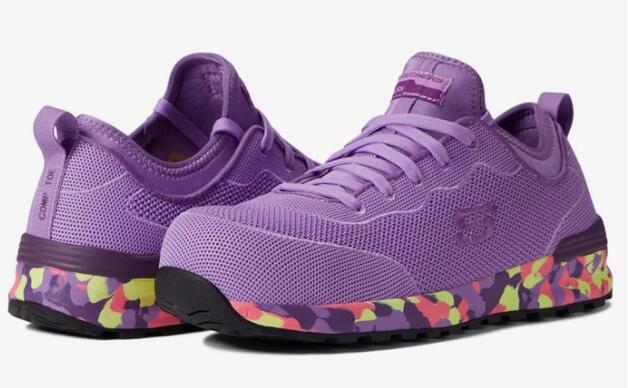Zappos Is Changing the Way Workers from Delta, Amazon & Other Fortune 500 Companies Buy Safety Gear
For over two decades, Zappos has been a go-to online destination for shoppers to find fashion sandals, boots and sneakers. But in the past few years it has been quietly cultivating a different customer set through its Zappos at Work (ZAW) program.
Launched in 2018, ZAW is a business-to-business platform that partners with major corporations to help their employees shop workwear from brands that meets their unique requirements. It now has over 50 enterprise clients, such as Delta Airlines and Amazon, and participating safety footwear brands include Carhartt, Merrell, Timberland Pro, Reebok Work, Rocky, Keen Utility, Skechers and dozens more.
According to Zappos, the program has seen 135% compound annual growth since its launch four years ago and added over a million new customers to the site.
“What we’ve been doing is taking our world-class customer service and value proposition — and all of our great brands at Zappos — and bringing that B2C experience to the B2B world,” said Crysti Howser, Zappos’ director of business development, who oversees the ZAW platform.
Michael Greenberg, president of Skechers, told FN that ZAW is a growing channel for his company. “[It] connects us directly with consumers who are already comfortable shopping on Zappos and familiar with their store and policies,” he said. “These consumers know that Skechers Work footwear delivers the comfort, safety, innovation and durability that they need at their worksite — so the platform makes it easy and effortless for them to purchase the gear they need.”
Howser explained that ZAW’s enterprise clients are able to pick from the e-tailer’s entire merchandise assortment and curate a selection that adheres to the uniform or safety requirements for the various roles in their organizations.
“We have hundreds of items for their employees to choose from, which is really different from what employees are typically used to, where you’re partnering with only one brand directly or one provider,” said Howser. “We allow employees a lot more autonomy than previous work safety footwear programs.”

Aside from a wider selection, there are other benefits as well. Customers shopping through ZAW can accumulate points to use on the site for future personal purchases. Howser also ZAW offers an average partnership discount of 10% for large enterprise clients, which, when combined with a uniform stipend, can stretch an employee’s purchasing power.
In addition, Zappos is drawing on its long-standing brand relationships to advance the selection of work and safety footwear in the market.
Howser said that over the last year, ZAW has tripled the size of its women’s assortment and now has hundreds of styles specifically designed for women. “Female-focused interest groups and sales have driven a change in how those items look and feel for women,” she said. “And that’s great because we’ve had a lot of women enter the trades. The Amazon workforce, for instance, is a lot more female leaning than your traditional trades jobs that would normally buy work boots in past years.”

And coinciding with the growth of its Zappos Adaptive program, the retailer introduced in Q2 an adaptive-friendly composite-toe Velcro sneaker with Reebok Work, made specifically for ZAW customers.
Jim Maritz, president and CEO of Warson Brands, which produces safety shoes for Reebok and several other brands, told FN, “As we do with many of our customers, we work to offer Zappos and its customers with a full range of safety footwear so that everyone’s safety needs and personal styles can be met and exceeded, leading to increased and happier performance at their workplaces and jobsites.”
Other brands have similar adaptive products in the works, with three more Velcro safety-toe shoes set to launch on ZAW in Q1 2023. “We want to be more inclusive to all different types of workers, especially as the population’s aging,” Howser said.
But one of the biggest trends she’s noticed in the safety shoe category is being driven by younger customers. As industries like warehousing, distribution and transportation continue to grow exponentially, they are opening up opportunities in the trades to millennial and Gen Z workers — and those consumers gravitate to athletic silhouettes from popular sneaker labels.
According to Howser, the top-selling men’s and women’s composite-toe safety shoes on ZAW in Q2 were all sneakers from Reebok, New Balance, Timberland Pro, Skechers and Nautilus.
That, in itself, isn’t too surprising — the work market has been trending toward sneakers for several years. What is unexpected is the styling: Customers are opting for bright, bold color combinations and patterns, a big departure from the classic black and brown tones that have traditionally dominated the work business. “The really young millennial wants all this color, and you’re seeing the most fun, colorful items selling well,” Howser said. “I don’t see that going away in the short term.”

